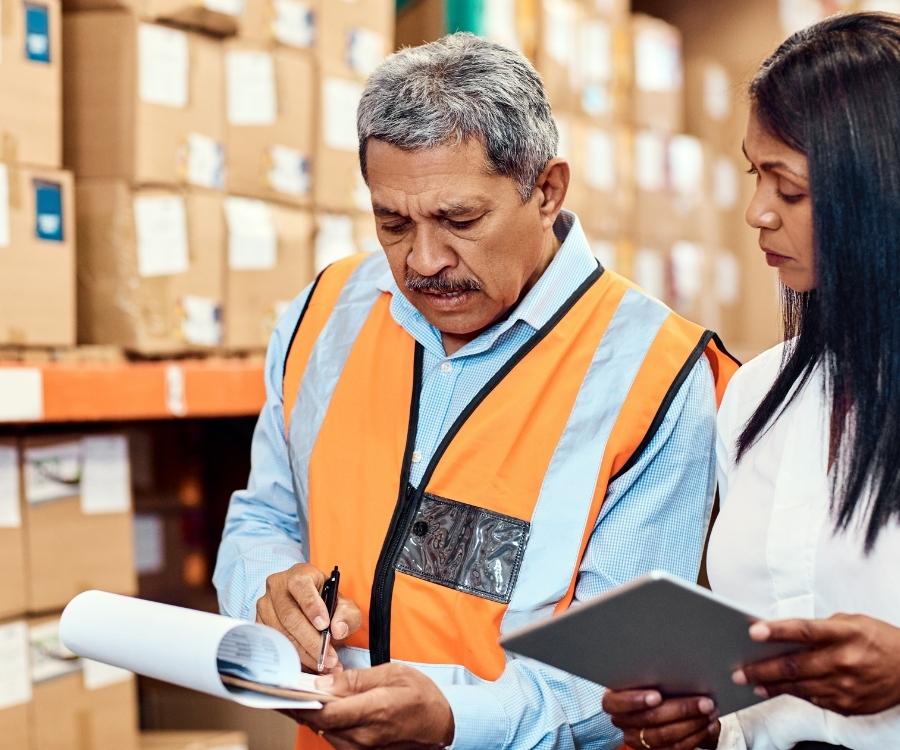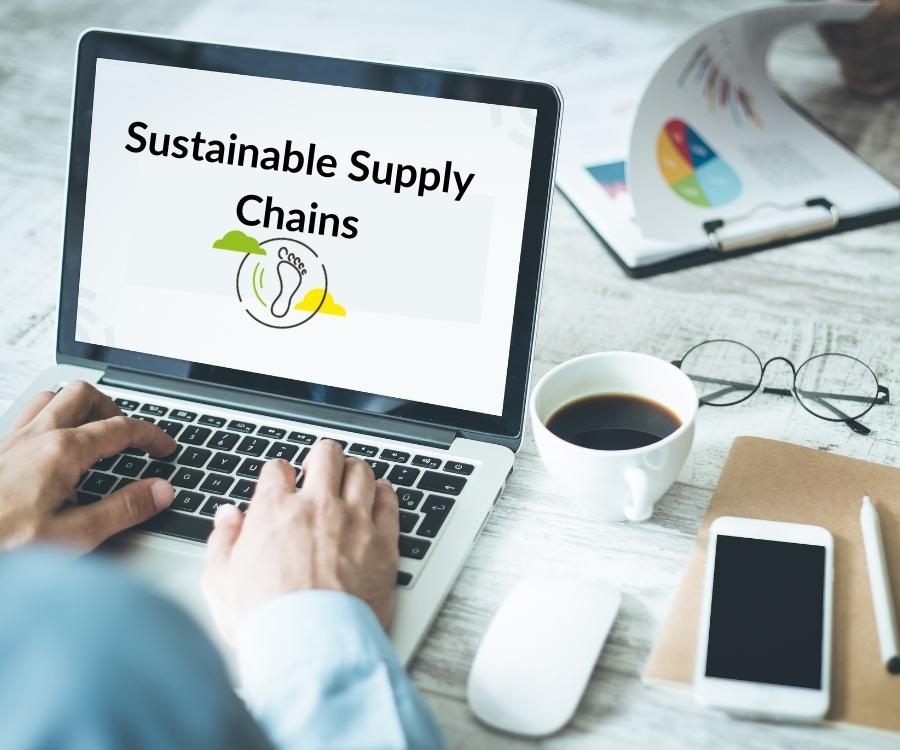Research from McKinsey shows that 90% of a business’s environmental impact comes from their supply chain – it’s therefore essential that businesses aspiring to be greener start to think about adopting a Sustainable Supply Chain.
However, establishing a Sustainable Supply Chain is no easy task.
In this blog we explore what a Sustainable Supply Chain is, the benefits and how to get started.
What is a Sustainable Supply Chain?
Your supply chain includes all the businesses who contribute to your product(s), from manufacturers to landlords.
Depending on the size of your business, your supply chain may be organic, finding suppliers as they are required, or they may be managed by a procurement team – who are responsible for sourcing and coordinating your suppliers to improve efficiency.
Traditionally, supply chains prioritise profit, however a Sustainable Supply Chain shifts the focus to include management of environmental, social, and economic impacts.
Procurement teams working within a Sustainable Supply Chain check not only the price of suppliers’ goods but also their waste, energy, and water use.
Examples of good practice – Tony’s Chocolonley

Tony’s Chocolonley is a chocolate manufacturer passionate about making chocolate fairer; for both people and the planet.
“The cocoa value chain remains unequally divided. A few big companies make huge profits while millions of smallholder cocoa farmers are underpaid for their cocoa. This leads to systemic poverty at the beginning of the cocoa supply chain, which in turn sustains the biggest issues cocoa farmers face: the inability to earn a living income, illegal labour and deforestation.”
Tony’s dedicated sourcing team work with local cocoa farmers to source locally produced raw materials and packaging materials so that all stages of their supply chain contribute minimally to the environment and support local people.
To deliver this work, a sufficient resource commitment is needed however this is essential, not optional, if the organisation wishes to meet their goal and deliver their sustainability message with integrity.
Read more in Tony’s 2020/21 Fair Report
Benefits of having a Sustainable Supply Chain?
The obvious benefits are a more positive impact on people and the planet, but they can also help:
- Raise profile – Both customers and employees increasingly expect organisations to be more sustainability focused. As stated before, with 90% of a business’s environmental impact coming from their supply chain, a Sustainable Supply Chain is more and more essential.
- Reduce costs – Although price increases are likely through the Sustainable Supply Chain process, savings can still be made, and passed on, in areas such as energy efficiency.
- Get ahead of regulation – Governments around the world are beginning to integrate sustainability into law; it’s good to get ahead of regulation as soon as you can.

How to get started making your Supply Chain Sustainable
The United Nations’ Sustainable Development Goals (SDGs) and a great place to start when considering Sustainable Supply Chain principles as they provide a blueprint for peace and prosperity for people and the planet.
In addition, research from Schwartz et al. outlines the following steps for getting started:
- Engage your business
- Create a Sustainable Supply Chain policy
- Integrate policy into your business
- Conduct a baseline assessment of suppliers
- Prepare & implement an action plan
- Monitor and report on progress made
Here at Groundwork, we believe in the power of people and therefore emphasise the importance of step 1; engaging your workforce.
By upskilling your employees on sustainability issues at an early stage and providing relevant environmental training, such as Carbon Literacy, you can generate a huge swell of interest in the topic of sustainability.
From this ground swell, environmental leads or ‘Green Teams’ are formed, who help share the workload of making your supply chain more sustainable. These environmental leads also help with wider cultural change and improve the adoption rate of any new processes and policies.
Engagement is a one of the priority areas Groundwork’s Consultants look at in a business’s Journey to Sustainability.
If you’d like help with your journey please,


